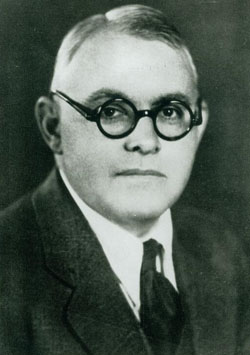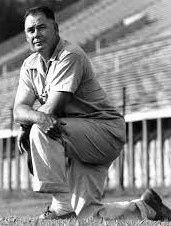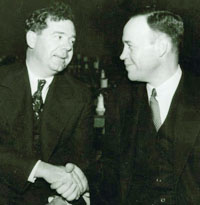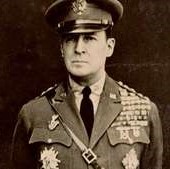LSU Pivotal Football Moments
pivotal college football moment: A decision by a coach or athletic director that changes the momentum of a program or an action by a player that changes the momentum of a game.
pivotal college football moment: A decision by a coach or athletic director that changes the momentum of a program or an action by a player that changes the momentum of a game.
LSU hired Russ Cohen as its new head coach for the 1928 season. Cohen had an impeccable pedigree. He played end for Dan McGugin at Vanderbilt for four years, serving as captain of Vandy's "point-a-minute" Southern Intercollegiate Athletic Association champions for 1915. Then he was an assistant at Alabama under the great Wallace Wade.
Cohen's LSU teams won six games each of his first three seasons at the helm but never finished higher than 6th in the Southern Conference. When his 1931 Tigers lost two straight games after starting the season 4-1, LSU's student newspaper, the Reveille, demanded that Cohen resigned.



L-R: Russ Cohen, Huey Long and James M. Smith, Troy Middleton
After the Tigers were spanked by Tulane's great Rose Bowl team 34-7, the man who really ran LSU, Governor Huey P. Long, offered Cohen a deal. Russ had two years remaining on the $7,500-per-year contract he signed after the 1929 season. Long offered Cohen $7,500 cash if he would agree to leave. Since he wanted to return to Vanderbilt to assist McGugin, Russ accepted the offer. His final record at LSU was 23-13-1.
Huey wanted a man with a strong personality who would instill discipline in the Tigers. Major Troy Middleton, commandant of cadets at LSU, was asked if Tennessee's coach, Robert Neyland, a West Point grad, might be interested in coming to Baton Rouge. Middleton considered that possibility to have two chances–slim and none. Instead, he recommended a captain at West Point who might be available.



L-R: Robert Neyland, Huey Long and Biff Jones, Douglas MacArthur
So, with Long's blessing, LSU President James M. Smith and James Broussard, chairman of athletics, contacted Lawrence "Biff" Jones, who had compiled an impressive 30-8-2 record as Army's football coach from 1926-29. During a telephone call, Jones admitted, "Huey Long worries me." Middleton convinced Biff that Huey's influence in athletics was exaggerated by the newspapers. The Major went so far as to say that Huey was more interested in the band than the football team.
Jones was talked into visiting to LSU. But after a brief stay, he told Middleton he wasn't interested. Asked to explain his hesitation, Jones said he did not want to resign from the Army. So Middleton offered him a position as an instructor in military science.
That arrangement required a trip to Washington by Smith and Broussard for a face-to-face meeting with General Douglas MacArthur, the chief of staff and a big West Point football fan and close friend of Jones. All MacArthur wanted to know was, "How much are you going to pay Biff Jones?" $7500 was the answer. "Okay, you can have him," snapped MacArthur. "You've got yourself a good coach, but don't ever come back and ask for any more favors."
Jones would last three years, compiling a 20-5-6 record and leading the Tigers to a tie for 1st in the Southern Conference in his first year, second place in the brand new Southeastern Conference in his second year, and a fourth place finish in his third year. A dramatic encounter with Huey Long in the locker room at halftime of the final game of the 1934 season ended Jones's tenure at LSU.
Biff coached Oklahoma for two years, then Nebraska for five. His 87-33-15 lifetime record earned him induction into the College Football Hall of Fame in 1954.